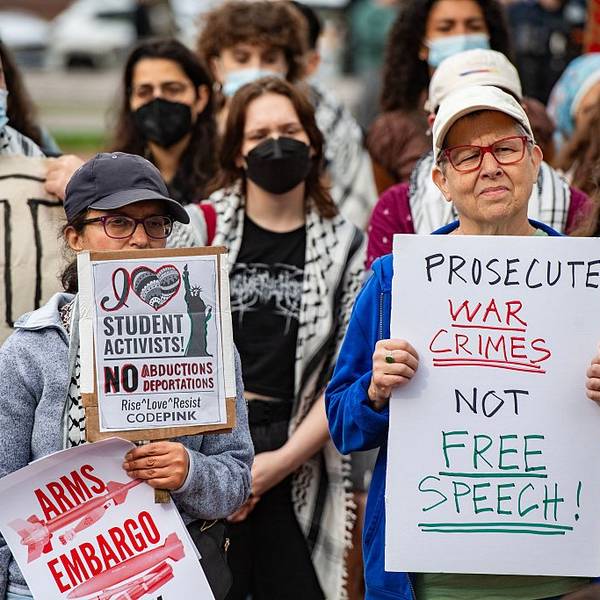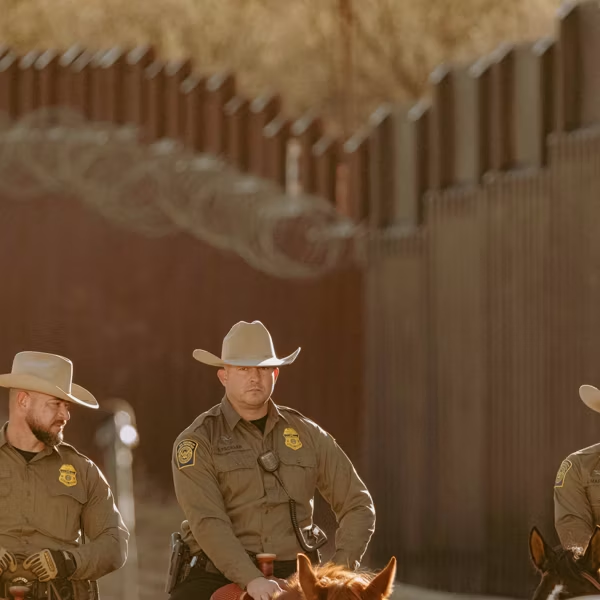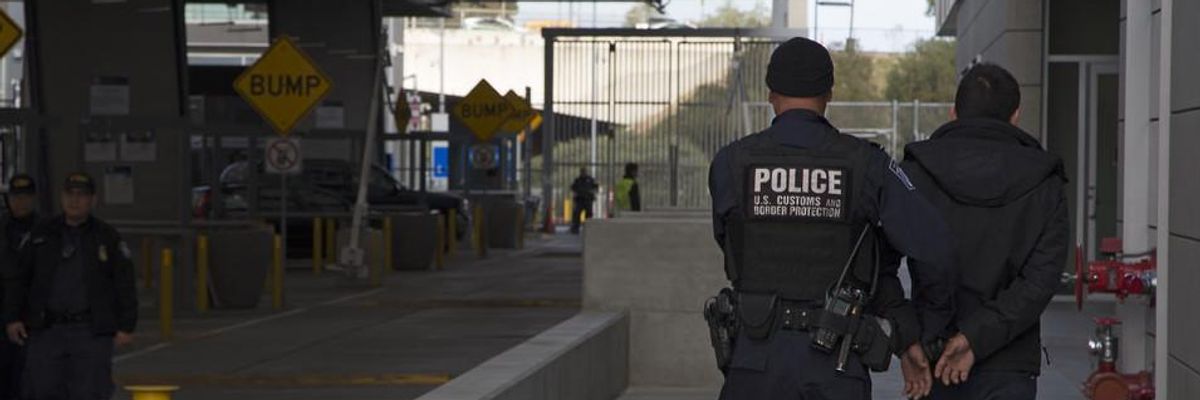The government is keeping a list of journalists and "instigators" that were involved with the so-called migrant caravan from the last months of 2018 and early 2019 in a database.
"The government cannot use the pretext of the border to target activists critical of its policies, lawyers providing legal representation, or journalists simply doing their jobs."
-- ACLU
That's according to reporting from NBC7 San Diego Wednesday evening that showed how the President Donald Trump administration is targeting opponents to its deportation and immigration policies.
The reporting is based on documents provided to the local NBC affiliate by a "Homeland Security source on the condition of anonymity." Dated Jan. 9, the documents--entitled "San Diego Sector Foreign Operations Branch: Migrant Caravan FY-2019, Suspected Organizers, Coordinators, Instigators and Media"--offer details of a program called "Operation Secure Line."
The source said the documents or screenshots show a SharePoint application that was used by agents from Customs and Border Protection (CBP) Immigration and Customs Enforcement (ICE), the U.S. Border Patrol, Homeland Security Investigations and some agents from the San Diego sector of the Federal Bureau of Investigations (FBI).
Each person identified in the document has a headshot followed by their name, date of birth, role in the caravan, "country of commencement," and the date of their interview (or prospective interview) by government officials.
CBP told NBC7 in a series of statements that the agency believed the targets of the list were involved in border violence, and thus needed to be monitored.
"Criminal events, such as the breach of the border wall in San Diego involving assaults on law enforcement and a risk to public safety, are routinely monitored and investigated by authorities," said CBP's statement.
In comment to Buzzfeed News immigration reporter Hamed Aleaziz, ICE distanced itself from the program, saying, "it is hard to support this activity."
A number of people on the list told NBC7 that they remembered being pulled aside for questioning at the border on multiple occasions during trips to cover the caravan's journey north.
"Two people in plainclothes came down and took me to another room," said freelance photojournalist Ariana Drehsler, referring to a stop when crossing back into the U.S.. "They questioned me in a small room, asking me questions about the shelter, what was I seeing there, who was I working for."
Drehsler told NBC7 that she was given secondary screenings three times out of the dozens of times she crossed the border to report on the caravan.
Journalists on the list also reported being detained and stopped by Mexican officials. Kitra Cahana, who, like Drehsler, is a freelance photojournalist, said she faced issues traveling from Canada to Mexico in January that ultimately resulted in her being put in a room at Mexico Customs with other detainees for 13 hours.
"I wasn't allowed to be in communication with anyone," said Cahana. "I wasn't allowed to contact my embassy."
In the end, Mexican authorities denied Cahana entry into the country.
"It was very confusing," Cahana added, "because my Spanish is quite limited and no one there really spoke English."
Another freelance photographer, Go Nakamura, told Buzzfeed News that CBP officials questioned him on his background and whether he recognized people in pictures they showed him.
"He asked me, do I recognize any of the faces," said Nakamura. "I didn't recognize any of the faces, so I said, 'no.'"
Journalists, progressives, and legal advocacy organizations expressed outrage over the list.
"This is an outrageous violation of the First Amendment," said American Civil Liberties Union attorney Esha Bhandari, in a statement to NBC7. "The government cannot use the pretext of the border to target activists critical of its policies, lawyers providing legal representation, or journalists simply doing their jobs."
Sue Udry, executive director of Defending Rights and Dissent, said on Thursday that it was time for Congress to step in.
"This document provides clear evidence that the government is targeting people based on their First Amendment-protected activities," Udry said. "The U.S. border has become a Constitution-free zone, and CBP is an agency out of control."
"Incredibly concerning overreach," tweeted activist Mark Riffenburg.
"Deeply disturbing," WIRED writer Steve Silberman wrote on Twitter, adding: "You can imagine how much more stuff like this is happening, and will happen, until the GOP is removed from power."




